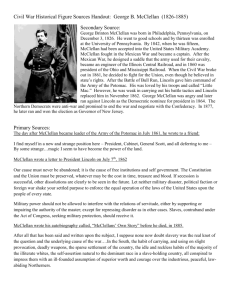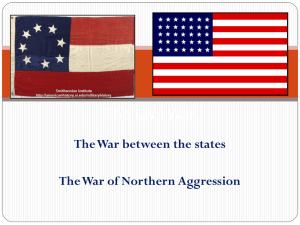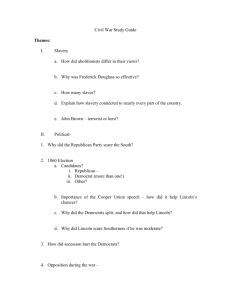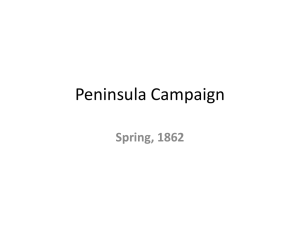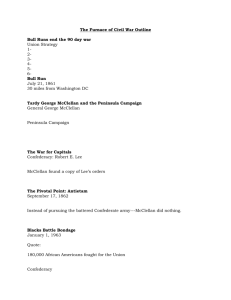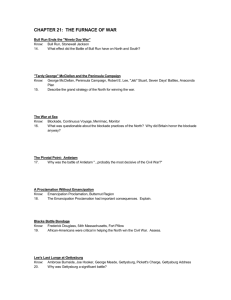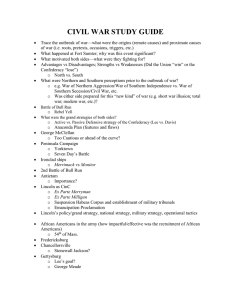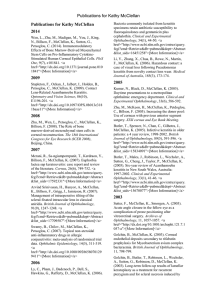– Used when you make PARENTHETICAL CITATIONS paraphrasing or quoting them directly.
advertisement
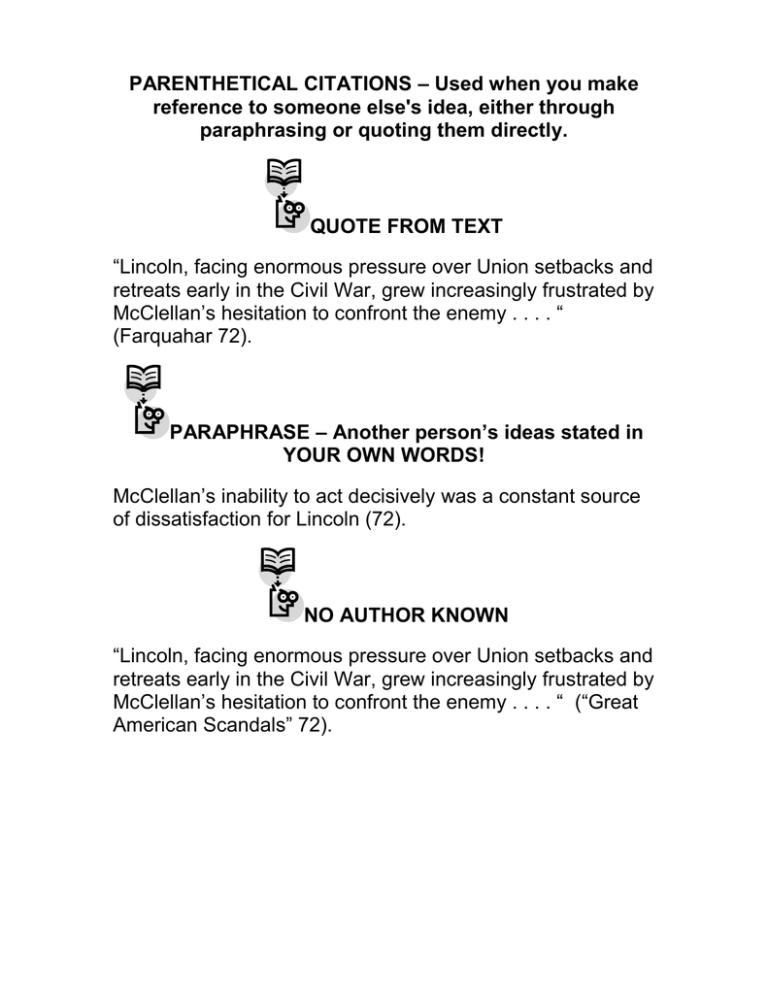
PARENTHETICAL CITATIONS – Used when you make reference to someone else's idea, either through paraphrasing or quoting them directly. QUOTE FROM TEXT “Lincoln, facing enormous pressure over Union setbacks and retreats early in the Civil War, grew increasingly frustrated by McClellan’s hesitation to confront the enemy . . . . “ (Farquahar 72). PARAPHRASE – Another person’s ideas stated in YOUR OWN WORDS! McClellan’s inability to act decisively was a constant source of dissatisfaction for Lincoln (72). NO AUTHOR KNOWN “Lincoln, facing enormous pressure over Union setbacks and retreats early in the Civil War, grew increasingly frustrated by McClellan’s hesitation to confront the enemy . . . . “ (“Great American Scandals” 72). INDIRECT QUOTATION - A QUOTATION THAT YOU FOUND IN ANOTHER SOURCE THAT WAS QUOTING FROM THE ORIGINAL. FOR SUCH INDIRECT QUOTATIONS, USE "qtd. In”) TO INDICATE THE SOURCE. For example: Lincoln, annoyed by McClellan’s refusal to use attack the enemy stated that McClellan had a case of “the slows” (qtd. in Farquahar 72). WEBSITE OR DATABASE ARTICLE Indicate the author's last name or the short title of the webpage or article if no author is stated. If there is a page number, give it.
